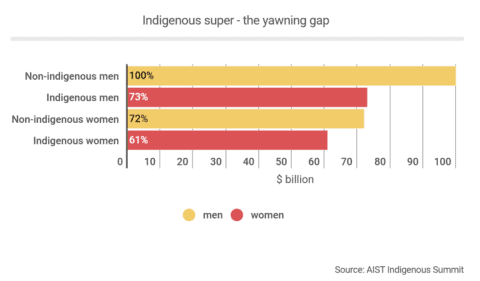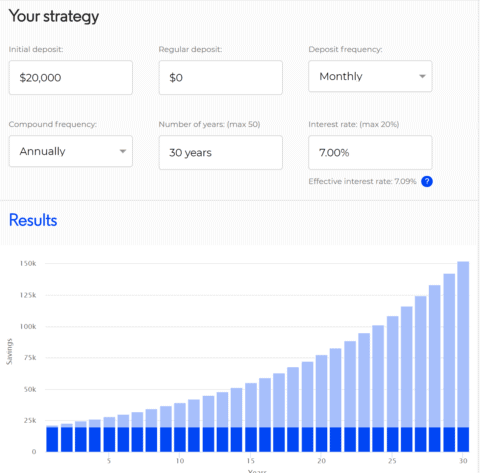Phil Usher is a proud Wiradjuri man from Central NSW. Phil is the CEO of the First Nations Foundation, which publishes this website.
While the idea of withdrawing up to $20,000 from your superannuation may sound tempting, it should be the very last resort. Rather than thinking about how a short-term injection of cash could help, instead visualise your retirement with $150,000 less available to you.
Under the new rules, workers whose income is reduced by at least 20% due to the Covid-19 outbreak are allowed to take $10,000 out of their super between mid-April and June 30, and a further $10,000 in the three months after that date.
Indigenous Australians are already retiring with lower super balances then non-Indigenous people, according to the table from the Australian Institute of Superannuation Trustees below.

The long-term impact of withdrawing funds now could be huge to the overall balance at retirement.
Superannuation works best when it compounds over a long period of time. The chart below shows that $20,000 invested at 7% per year over 30 years would be worth $150,000 by retirement.

What that means is that you could be taking $150,000 from your retirement super balance if you withdraw that $20,000 now – because that’s what the money will be worth in the future.
If you are experiencing financial difficulty, applying for the Jobseeker payment should be the first priority. While the offices are busy and the My Gov website continues to crash, it’s something that requires perseverance. At the moment there is no need to go into the office.
Trying online at quieter times – like late at night – may be a good option.
Having a conversation with your bank if you have a mortgage, or real estate agent if you rent, is another good option. There are a lot of support packages in place that you may be able to access.
This extends to your electricity or phone provider. Contact them and discuss your options, and this should be done sooner rather than later.
If you find that in spite of all this you still need to access your super, put together a bit of a budget on where each dollar will go.
You may find that $7,000 is enough to cover your immediate expenses and you could potentially place the other $3,000 back into super once you have a bit more certainty around your money.
If you feel like you need help, please contact the National Debt Helpline on 1800 007 007 or visit ndh.org.au